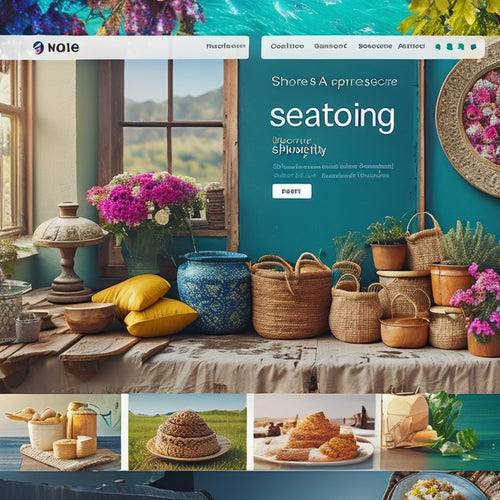
Unveil the Secrets of Great Wine
Share
Great wine is a harmonious blend of art, science, and tradition, where the perfect balance of grape variety, fermentation, and aging processes converges to create a complex and nuanced beverage. Understanding the fundamentals of wine, including the essential components of grapes, fermentation, and aging, is vital for appreciating its complexity and diversity. Exploring wine regions and their unique terroirs, climates, and characteristics refines the palate and informs wine selection. By mastering the eight stages of wine tasting, enthusiasts can uncover the secrets of great wine and discover a world of flavors, aromas, and sensations that await further exploration.
Key Takeaways
• Understanding the essential components of wine, including grapes, fermentation, and aging, is crucial for appreciating its complexity and diversity.
• The unique terroir and climate of a wine region shape its characteristics, making exploration through vineyard tours essential for refinement.
• The eight stages of wine tasting, from visual examination to lingering finish, help identify wine style, structure, and aging potential.
• The right grape variety, such as Chardonnay or Cabernet Sauvignon, can enhance specific flavor, aroma, and color characteristics in wine.
• Aging processes, like oak barrel aging, refine flavor and aroma, adding depth and complexity to great wine.
Understanding Wine Fundamentals
Fundamentally, a deep understanding of wine begins with grasping its essential components, including the role of grapes, fermentation, and aging processes that shape the final product.
Wine production is an intricate process that relies heavily on the quality of grape varieties used. Different grape varieties, such as Chardonnay, Cabernet Sauvignon, and Merlot, possess unique characteristics that influence the flavor, aroma, and color of the wine.
The fermentation process, which converts grape juice into alcohol, can be manipulated to enhance or accentuate specific characteristics. Aging processes, including oak barrel aging, further refine the wine's flavor and aroma.
A thorough understanding of these fundamental components is vital for appreciating the complexity and diversity of wine. By grasping these essentials, wine enthusiasts can develop a deeper appreciation for the art of wine production.
Exploring Wine Regions
Wine regions, comprising diverse terroirs and climates, play an essential role in shaping the distinctive characteristics of wines produced within their boundaries. Exploring these regions offers a unique opportunity to investigate the complexities of wine production.
By starting on vineyard tours, wine enthusiasts can gain a deeper understanding of the intricacies of terroir, including soil composition, sunlight exposure, and altitude. This hands-on approach allows individuals to develop a more nuanced appreciation for the role of environment in shaping the final product.
As a result, wine enthusiasts can refine their palate and make more informed decisions when selecting wines that align with their personal preferences.
Wine Tasting and Appreciation
Eight distinct stages, from visual examination to lingering finish, comprise the structured process of wine tasting and appreciation, a nuanced sensory experience that rewards deliberate attention and deliberate practice. To master wine tasting, one must develop a keen sense of observation, honed through repeated practice.
| Stage | Focus | Objective |
|---|---|---|
| Visual Examination | Color, Clarity, Viscosity | Identify wine type, age, and quality |
| Olfactory Analysis | Aroma Profiles, Intensity | Detect fruit, floral, and earthy notes |
| Tasting | Flavor Profiles, Acidity, Tannins | Identify wine style, balance, and structure |
| Finish | Lingering Sensations, Length | Assess wine's complexity and aging potential |
Frequently Asked Questions
Can I Personalize a Wine Gift With a Custom Message?
Yes, you can personalize a wine gift with a custom message. Take advantage of message options, such as gift messages, to add a thoughtful touch, demonstrating wine etiquette and making the gift even more special.
How Do I Access Online Tests and Certificates for Wine Courses?
Much like accessing a prized wine cellar, accessing online tests and certificates for wine courses requires a key: simply navigate to the course guide, where you'll find the gateway to Wine Accreditation through Online Learning, awaiting your mastery.
Are Membership Discounts Available for Wine Course Purchases?
'Yes, membership discounts are available for wine course purchases. By enrolling in the Andreas Wine Course Membership, you can access wine savings and discount benefits on select courses, including the Great Wine Made Simple series.'
Can I Purchase Individual Wine Course Sessions Separately?
Yes, individual wine course sessions can be purchased separately, offering flexibility for those who prefer à la carte learning; session bundles are also available for thorough exploration of specific wine topics.
What Is the Benefit of Using Coravin Pivot With Wine Courses?
The Coravin Pivot enhances wine courses by facilitating wine preservation, allowing for precise pours and minimizing waste, while also enabling advanced tasting techniques, such as comparing vintages and exploring wine evolution.
Related Posts
-

Social Proof Shopify Apps Help Build Trust Among Customers by Displaying Real Reviews and Actions
This article examines the role of social proof Shopify apps in fostering trust among customers by showcasing authent...
-

What Is the Competitive Advantage of Shopify
This article examines the competitive advantage of Shopify in the context of e-commerce businesses. It aims to provi...

